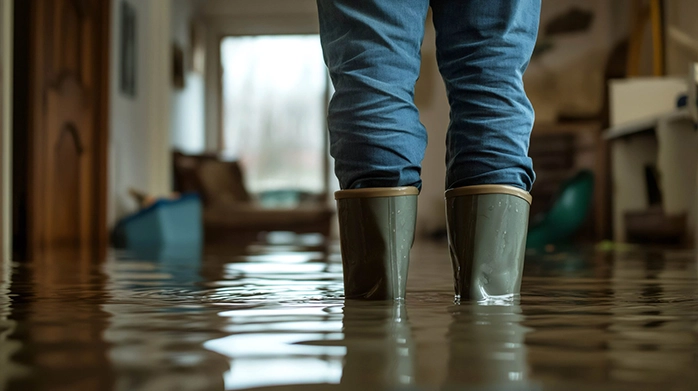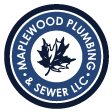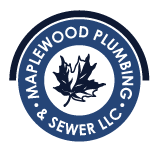
When a pipe bursts in the middle of the night, one of the first questions that comes to mind is: “Will my insurance cover this?” However, the answer isn’t always straightforward. Keep reading as we look at what’s typically covered, what’s excluded, and how you can protect yourself.
What Plumbing Issues Does Homeowners Insurance Typically Cover?
Most standard homeowners insurance policies provide coverage in these three circumstances:
Sudden and Accidental Damage
Homeowners insurance typically provides coverage for plumbing damage and leaks when they occur suddenly and unintentionally. If your washing machine hose suddenly bursts or a pipe unexpectedly breaks and floods your kitchen, your insurance will likely cover the resulting damage.
Burst Pipes from Freezing
If pipes freeze during winter despite your best efforts to prevent it, most policies will cover the damage. Typically, your homeowners insurance covers cleaning and required repairs due to water damage that is a result of a frozen pipe that has burst. However, if you turned off your heat when leaving for vacation, causing the pipes to freeze, your claim might be denied.
Hidden Plumbing Leaks
If a plumbing leak is hidden away in your walls and unknown to you, you may also be covered for repairs, even if the leak occurred over the course of weeks or months. This is because you couldn’t reasonably have known about or prevented the problem.
What Plumbing Issues Aren’t Covered by Homeowners Insurance?
Understanding what’s not covered is equally important. Here are some common plumbing issues that your standard homeowners insurance policy likely won’t cover:
Gradual Damage and Wear and Tear
The purpose of home insurance is to cover damage caused by sudden, accidental events like a storm, fire or falling object. Since most plumbing troubles are maintenance issues, they are not usually covered by home policies.
Negligence and Lack of Maintenance
If you notice a small leak but don’t address it promptly, any resulting damage may not be covered. If you suffer catastrophic damage due to improper maintenance, such as failing to fix a pipe you know is leaking, your insurer could deny your claim.
Sewer Line Backups
A standard home insurance policy won’t cover water damage from sewer line backups or clogged pipes. For protection against these issues, you’ll need to purchase additional coverage.
Flood Damage
Most people are surprised to learn that floods are excluded from coverage on almost every standard homeowners policy. If you live in a flood-prone area, you’ll need separate flood insurance through the National Flood Insurance Program (NFIP).
So, Does Homeowners’ Insurance Cover Pipe Breaks?
Homeowners insurance typically covers pipe breaks that are sudden and accidental (such as pipes that burst due to freezing temperatures despite proper home maintenance.) However, there’s an important distinction to understand: while your policy may cover the water damage resulting from a broken pipe (such as damaged walls, flooring, and furniture), it might not cover the cost of repairing the actual broken pipe itself.
This is because many insurers consider the pipe repair to be a maintenance issue rather than damage from a covered peril. Additionally, if the pipe break occurred due to negligence (like failing to maintain proper heating during winter) or gradual deterioration (such as corrosion in older pipes), your claim will likely be denied.
Tip: Be sure to always review your specific policy details, as coverage can vary significantly between insurance companies!
How To Maximize Your Coverage for Plumbing Emergencies
Here are several steps you can take to ensure you have adequate protection for plumbing-related issues:
Review Your Policy Regularly
Take time to read through your policy and understand what’s covered and what’s excluded. Don’t hesitate to ask your insurance agent for clarification on specific scenarios related to your home’s plumbing.
Consider Additional Coverage Options
Several endorsements can enhance your plumbing coverage:
- Sewer backup coverage
- Water backup coverage
- Service line coverage (for pipes connecting your home to municipal systems)
- Flood insurance (if you live in a flood-prone area)
Document Your Home’s Condition
Take photos or videos of your home’s current condition, including visible plumbing fixtures. This documentation can be invaluable when filing a claim.
Implement Preventative Measures
Prevent plumbing disasters before they happen with these proactive steps:
- Install water leak detection devices
- Know the location of your main water shut-off valve
- Schedule regular plumbing inspections
- Insulate pipes in unheated areas during winter months
- Keep your home adequately heated during cold weather
FAQs: How Insurance Companies Handle Plumbing Emergencies
What are the most common plumbing issues homeowners face?
Dripping faucets, clogged or slow drains, running toilets, low water pressure, leaky pipes, sewer backups, and sump pump failures.
Will my insurance cover appliance leaks or overflows?
If your dishwasher or water heater suddenly malfunctions and causes water damage, your policy may cover the damage to surrounding floors, but typically not the appliance itself. However, if the leak was caused by normal wear and tear or lack of maintenance, your insurance likely won’t cover any of the resulting damage.
What if somebody else caused plumbing damage? Am I covered?
When plumbing damage originates from someone else, such as a neighbor’s pipes flooding onto your property or a contractor incorrectly installing a washing machine, their insurance may be responsible for covering repairs. However, you still might pay out-of-pocket initially and then be reimbursed through their liability coverage once the claims process is completed.
Does homeowners’ insurance cover slab or foundation leaks?
For this, let’s say your sewage pipes suddenly burst beneath your home’s foundation or slab. As long as the leak isn’t your fault, homeowner’s should cover the cost of removing and replacing the slab in addition to accessing and repairing the pipe.
How exactly does my insurance cover plumbing damage?
- Dwelling coverage protects your home’s structure, including damaged walls, ceilings, and built-in appliances like water heaters
- Personal property coverage pays for damage to belongings like furniture, electronics, and rugs
- Other structures coverage handles damage to detached buildings on your property
- Loss-of-use coverage may help with temporary housing if your home is uninhabitable during repairs
- Personal liability coverage can protect you if your plumbing issues damage a neighbor’s property
What can I do to prevent serious plumbing problems down the road?
- Have your pipes professionally inspected annually to catch potential issues before they become major problems
- Consider installing water monitors or leak detection systems that can alert you to pressure drops or leaks
- Ensure pipes are properly insulated, especially in older homes and colder climates
- Use only truly flushable products to avoid clogs in your plumbing and sewer system
- If your home was built between the late 1970s and 1990s, check whether you have polybutylene piping, which is prone to failure and may need replacement
When Plumbing Disasters Strike, We’re Here to Help
While insurance can provide financial protection against certain plumbing disasters, having a reliable plumbing company on call is equally important. At Maplewood Plumbing and Sewer, we work with homeowners and insurance companies to address plumbing emergencies quickly.
Comments are closed


